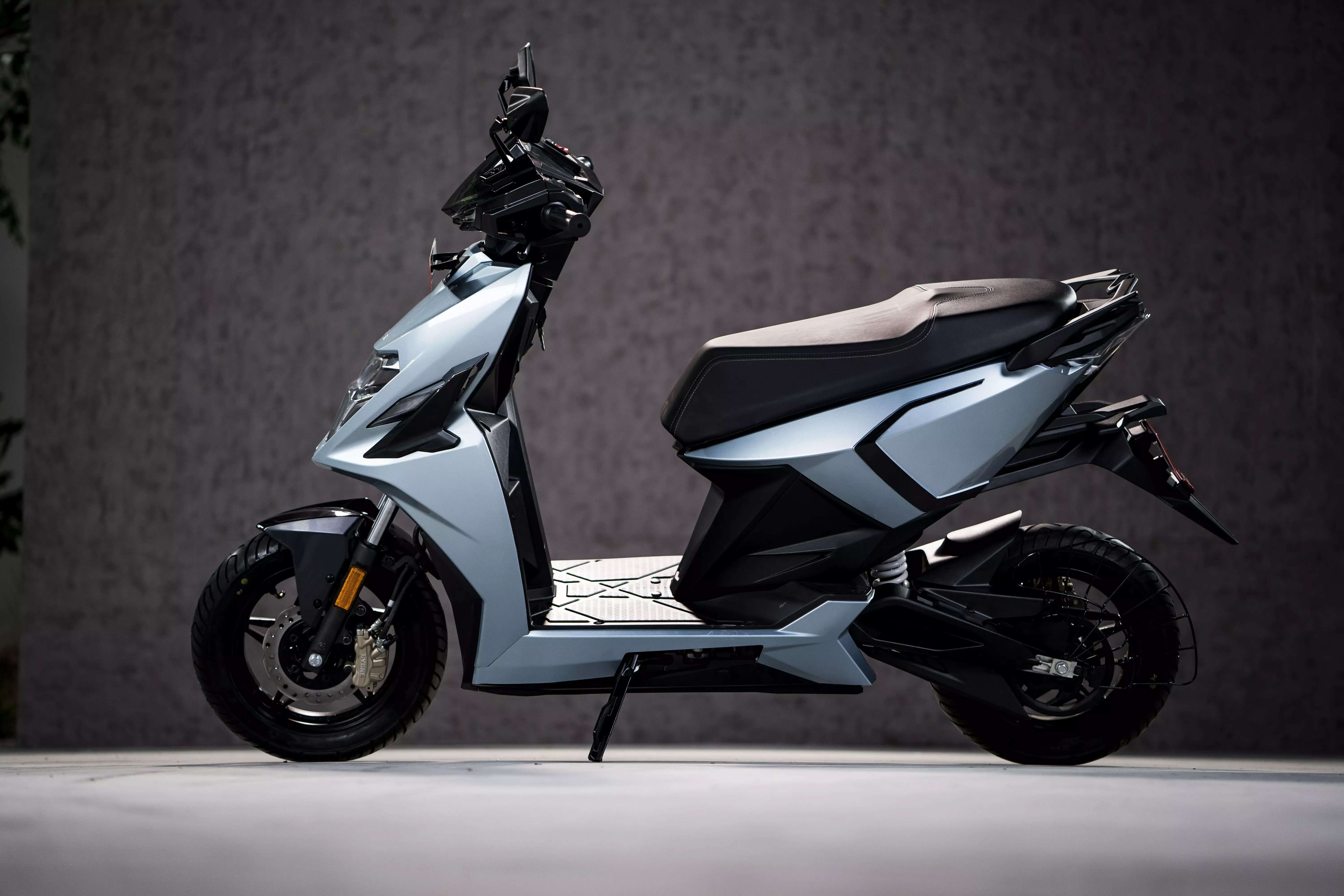
Bengaluru: EV startup Simple Energy has finally entered the market with its maiden electric scooter, Simple One, for which customers have been waiting for almost two years. The company said it is also working on new products and plans to bring them by 2025.
“We are working on two more electric scooters and an electric motorcycle which will be launched within the next 18 months. We are also working on an electric car and hopefully it will be launched by 2025. Our target is to improve powertrain efficiency and we are also building a new motor technology for that and it will be magnetless. Apart from this, we are also exploring the option of a strong hybrid car,” Suhas Rajkumar, Founder & CEO, Simple Energy, told ETAuto.
The upcoming scooters will be priced lower and based on the same platform as Simple One. One of them will be performance-oriented, and the other utility-built. The price will be between INR 1 lakh and INR 1.5 lakh, and the production is expected to begin in the next 8-10 months. The premium motorcycle is expected to be introduced in the market in the next 18 months in the price range of INR 3 lakh to INR 5 lakh.
The startup has no plans to bring a two wheeler for the B2B fleet segment because it “does not see itself innovating there.”
The Bengaluru-based company is bullish on scaling up and positive about its electric car plans. Rival Ola Electric is also planning to introduce its battery electric car by 2025. Both the startups are in a race to win the market for not only electric two wheelers, but also electric cars.
Simple One
Simple Energy recently launched its first product Simple One with a starting price of INR 1.45 lakh. The company had earlier showcased the scooter on August 15, 2021 with a price tag of INR 1.10 lakh (all prices, ex-showroom). Ola Electric, which is currently the top selling electric two wheeler maker in India, also launched its S1 Pro on the same day.
Then, Simple had promised customer deliveries to begin in December 2021. Deferred several times to June 2022, and September 2022, it is now finally set to begin from June 6, in a phased manner from Bangalore.
The 4-year old startup said that the first delay occurred owing to the Covid-19 impact and supply chain constraints. The second delay was a conscious call amidst an increasing number of EV fire incidents. The final delay was attributed to the compliance of new battery safety norms by the Ministry of Road Transport & Highways (MoRTH).

However, Rajkumar assured that the scooter which comes equipped with fixed and portable batteries, with a range of 212 km in Ideal Driving Conditions (IDC) gets an improved Li-ion battery with 5kWh capacity. Its thermal management system is developed collaboratively with IIT-Indore.
While it is important to deliver a quality product, Simple now holds a big responsibility of delivering the product to the customers in time, without further delay. The previously booked scooters will be delivered at the revised price. The company says it holds an order book of over 1 lakh. It is yet to be seen how many of the bookings would materialise.
Simple is focusing on a mix of online and offline retail strategy. “We have identified 5 dealer partners in Bangalore and the first offline store is scheduled for opening by July-end near the Airport. We are aiming to open 60-70 stores across India by the next few months.”
Its present customers are in the age group of 25 years and above. The demand within urban and semi-urban areas is split into a 60:40 ratio.
Wants to be the top e-2W player in a year
Simple has ambitious plans of clocking 30,000 units per month and be the number 1 electric two wheeler maker in the country within a year. Rajkumar is betting on its upcoming lower priced models to accelerate the sales further. By the next 2 years, it wants to grab a 60%-70% share of the market.
Ola, which currently grabs the largest pie of the market, sold about 22,000 units last month.
“Going forward, we are looking at scaling up so that we can improve our margins on the topline. We are looking at getting EBITDA positive in the next 24 months and the revenue should be INR 150 crore to INR 200 crore by the end of this year. By the next 12 months, the company is looking at a topline of about INR 3000 crore,” he said.
During FY 2022-23, the electric two wheeler sales in India stood at 8.47 lakh units, as against 3.28 lakh units in the previous fiscal. According to the Society of Manufacturers of Electric Vehicles (SMEV), FY23 saw sales of 1.2 lakh low-speed and 7.27 lakh high-speed e-scooters.
Recently, the Heavy Industries Ministry has notified about a reduction in subsidy provided under FAME-II (Faster Adoption of Manufacturing of Electric Vehicles in India) scheme applicable on electric two-wheelers registered on or after June 1, 2023.
For electric two-wheelers, the demand incentive will be INR 10,000 per kWh. The cap on incentives will be 15% of the ex-showroom price of vehicles from 40% at present.
“The recent announcement on the reduction of the FAME-II subsidy can have a significant impact on consumer demand. The growth of electric two wheelers will be delayed by 2-3 years. However, the dip may be for the first 3 years and then again the industry will start looking up,” Rajkumar said.
Production schedule
The EV startup said it started production at the newly-built manufacturing unit Simple Vision 1.0 in January this year, for which the company has initially invested about INR 100 crore. Located at Shoolagiri, in the Krishnagiri district of Tamil Nadu, the facility is spread across 2 lakh sq ft. and equipped with GA Line (General Assembly Line), motor manufacturing line, battery manufacturing line and cell storage, and CAL (Customer Acceptance Line). It also supports vehicle testing.
The factory’s current installed capacity is at 3 lakh units, which can be scaled up to 10 lakh units by the next 2 years.
Hiring talents
With plans for scaling up, Simple said it is looking to hire people on the manufacturing front. The company currently has a headcount of 400 employees, including 300 in R&D and 100 in manufacturing.
“We will hire about 200-300 people for R&D with 60% focus on electronics and the rest 40% for engineering. On the manufacturing front, 30% hiring will be for the battery line, 20% for motor and 50% for general assembly lines. We are also hiring a couple of people from Tesla,” Rajkumar said.
The EV startup is also trying to get in vendors who can manufacture PCBs in India to reduce the logistics and conversion costs.

















